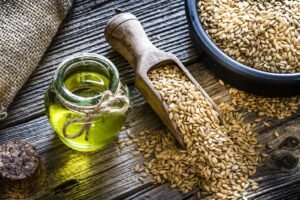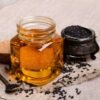Introduction: Unveiling the Mystery of Seed Oils
Seed oils have become increasingly popular in the realm of cooking and nutrition, but the question remains: are they a boon or a bane for our health? In this comprehensive exploration, we will delve into the potential benefits and drawbacks of seed oils, shedding light on whether they are truly good or bad for you.
The Pros of Incorporating Seed Oils in Your Diet
Seed oils, derived from various plants, offer a range of health benefits that make them a tempting addition to many kitchens. Understanding the positive aspects can help you make informed decisions about incorporating them into your diet.
1. Rich Source of Essential Fatty Acids
Many seed oils, such as flaxseed oil, chia seed oil, and hemp seed oil, are abundant in omega-3 and omega-6 fatty acids. These essential fats play a crucial role in supporting heart health, brain function, and overall well-being. Including these oils in your diet can help maintain a healthy balance of fatty acids, contributing to optimal bodily functions. https://naturalhealthlabco.com/?page_id=2861/

2. Antioxidant Properties
Certain seed oils, like sunflower seed oil and grape seed oil, contain antioxidants that help combat oxidative stress in the body. Antioxidants play a key role in neutralizing free radicals, which are implicated in the aging process and various diseases. By incorporating antioxidant-rich seed oils, you may promote cellular health and reduce the risk of chronic illnesses.
3. Versatility in Cooking
Seed oils have a high smoke point, making them suitable for various cooking methods, including frying and sautéing. Their neutral flavors also make them adaptable for both sweet and savory dishes. This versatility in the kitchen allows for a broader range of culinary possibilities, encouraging individuals to experiment with different cooking techniques and flavors.
The Cons: Potential Drawbacks of Seed Oils
While seed oils offer numerous benefits, it is crucial to be aware of potential drawbacks to make informed decisions about their inclusion in your diet.
1. Omega-6 Overconsumption
While omega-6 fatty acids are essential for the body, an imbalance between omega-3 and omega-6 intake can lead to inflammation. Many seed oils, such as corn oil and soybean oil, are high in omega-6 fatty acids. Excessive consumption of these oils without an adequate intake of omega-3s may contribute to inflammation-related health issues.
2. Susceptibility to Oxidation
Some seed oils are prone to oxidation, especially when exposed to heat and light. Oxidation can turn these oils rancid, leading to the formation of harmful compounds. It is crucial to store seed oils properly, in dark and cool conditions, and avoid using them for high-heat cooking to mitigate the risk of oxidation.
3. Allergen Concerns
Individuals with allergies should exercise caution when incorporating seed oils into their diet. Certain oils, like sesame seed oil, can trigger allergic reactions in susceptible individuals. Checking for allergen warnings and consulting with a healthcare professional can help prevent adverse reactions.
Conclusion: Striking a Balance for Optimal Health
In conclusion, the debate over whether seed oils are good or bad for you revolves around striking a balance. While these oils offer valuable nutrients and culinary versatility, moderation is key. Choosing a variety of seed oils, being mindful of omega-3 and omega-6 ratios, and considering individual health factors are essential steps in optimizing the benefits of seed oils while minimizing potential drawbacks.
By staying informed and making conscious choices, you can harness the positive aspects of seed oils to enhance your overall well-being.





